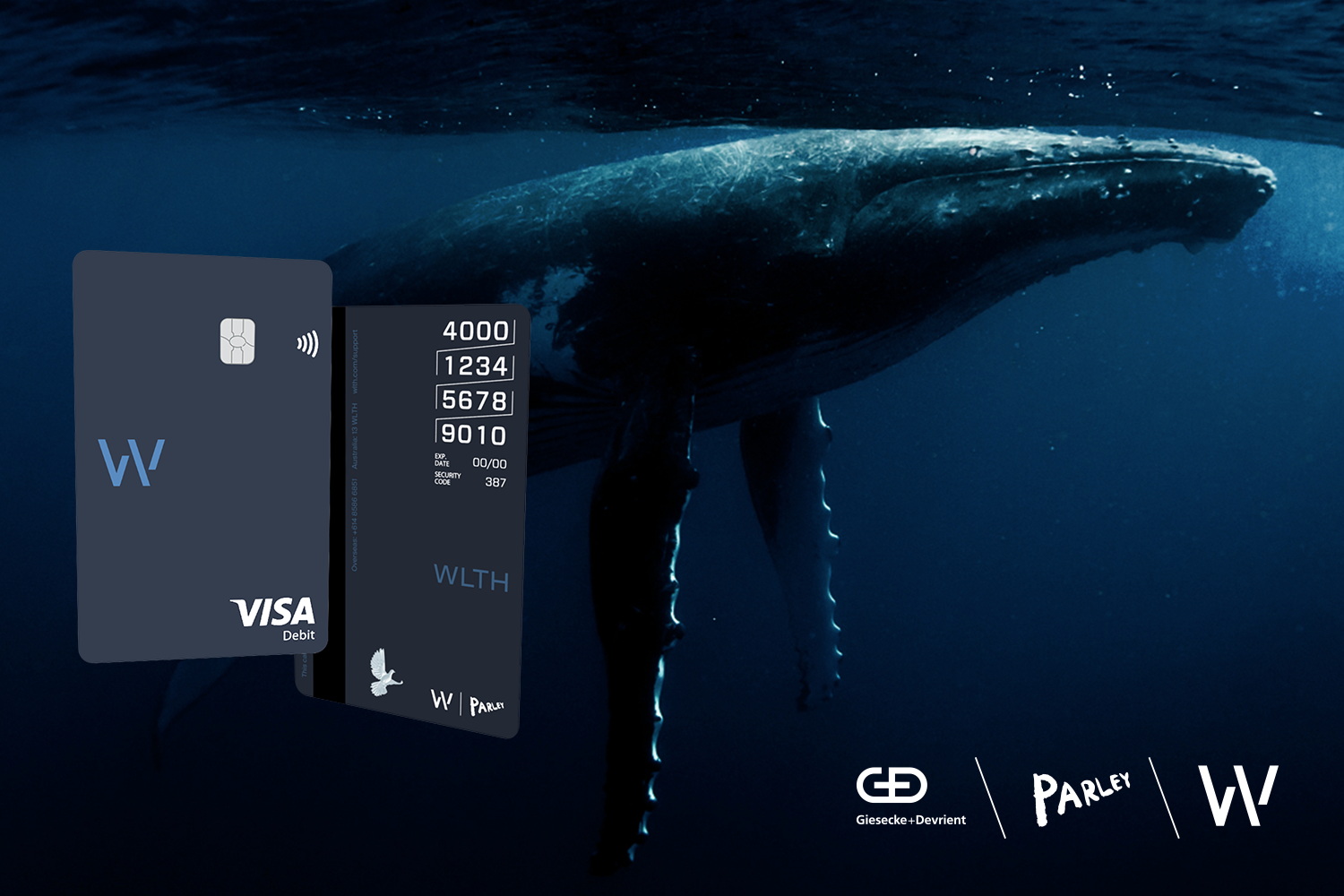Marine pollution is a growing concern, where the scenic coastline view of long white beaches and glittering blue seas is under threat.
With over 11 million metric tonnes of plastic pollution entering the marine environment every year, it is a complex, fast-growing and global threat. It impacts every known ecosystem and every human on Earth. And it’s worsened by everyday decisions
However, everyday decisions can also be a solution. Using a sustainable payment card as a consumer or providing one as a bank reflects a call for action to drive society as a whole to adopt positive changes against ocean pollution.
From a problem to a solution
While it’s difficult to know the exact figures, a 2012 report from WSPA indicates that between 57,000 and 135,000 whales are entangled by plastic marine debris every year in addition to the inestimable – but likely millions – of birds, turtles, fish and other species affected by plastic marine debris.
Giesecke+Devrient (G+D) actively advocates for ecological and socially sustainable development. G+D wants to further intensify its commitment and actively contribute to preserving our planet and society worth living in. By providing payment cards that are entirely made of recycled plastics, ocean plastics, or bio-based plastics, the company is helping its banking clients to be part of the solution for this global challenge.
To fight against the evergrowing climate issues, G+D established the Convego Beyond Eco-portfolio and forged a strategic partnership with Parley for the Oceans, an environmental organisation raising awareness for the beauty and fragility of the oceans and taking action to end their destruction.
Together, they launched the Parley Ocean Plastic payment card. The card removes the need for virgin plastic and gives a revitalised purpose to discarded plastic, which would otherwise pollute the oceans and threaten wildlife.
“To end plastic pollution and the environmental crises behind it, we need to align our economic system with the ecosystem we all depend on – the oceans,” says Cyrill Gutsch, CEO and founder of Parley for the Oceans.
“The keys to change are collaboration and eco-innovation. The Convego Parley Ocean card and the alliance behind it represent the future we have the opportunity to create, and the role leaders of financial technology can play in shaping it.”
Let the spirit flow in Australia
Manufactured by G+D, 45,000 ocean plastic Visa debit cards have been created from intercepted and up-cycled marine plastic waste and are exclusively available for the customers of Brisbane-based fintech, WLTH.
“We have a 100 per cent eco and sustainable card – from the packaging to the envelope, to even the glues being plastic-free, and of course to the card itself and the design,” explains WLTH CEO and co-founder, Brodie Haupt.
“Our customers are becoming more socially conscious and we are empowering them to be more involved in protecting the environment.”
A step beyond payment cards
The eco-journey is never solely about just delivering a payment card. G+D looked at packaging to make sure every facet of the final product was as responsibly sourced as possible. Together with the team at WLTH and local packaging partners, only recycled paper material was selected for the card to be packaged in, including WLTH branding printed using soy-based inks.
G+D’s banking clients also have the option of partnering directly with Parley to make positive impacts on the environment by getting involved in clean-up projects. These help to fund Parley Ocean school programmes and implement ecosystem protections for a thorough and meaningful contribution to the environment.
Doing it right is the best way to fight against greenwashing
As the eco-initiative is ramping up in the banking industry, greenwashing, unfortunately, is becoming a growing issue that is risking a bank’s portfolio and creating more hazards for those who want to do it correctly.
With more and more eco-friendly payment cards offered in the market, the quality and value of a payment card can vary. Manufacturers are using payment cards made of a high percentage of virgin plastics and a low proportion of ocean-bound or ocean plastics, causing more problems in addition to existing challenges.
Self-labelling ‘eco-cards’ not only falsely drive banks to make the wrong choices, but also brings them the risk of harming their own portfolio and failing environmental promises to their end customers.
Virgin plastic cards with questionable ‘greener’ claims also ramped up the competition toward the next level, sometimes discouraging those offering truly sustainable card products.
In fact, end customers are knowledgeable enough to pick up a greenwashing action, which shall warn the banks that are not conscious enough with selecting the sources of the supplier.
“JUST PARTNER WITH ORGANISATIONS THAT ARE DOING THE RIGHT THING”
At the end of the day, the goal is to come together and collaborate on the path of eco-innovation, creating new business models that will be able to benefit from sustainable choices, while creating a better future for our planet one step at a time.
With eco-partnerships built as the foundation for more sustainable, healthy ecosystems, G+D will continue to partner with Parley for the Oceans to empower banking clients to go beyond the offering of banking products to sustainability programs with all stakeholders involved at all levels.
Walking along this pathway, partnerships and deliverable eco-products are becoming critical parts of the overall solutions in fighting against the climate crisis for the planet.
Full Article: The Fintech Times

